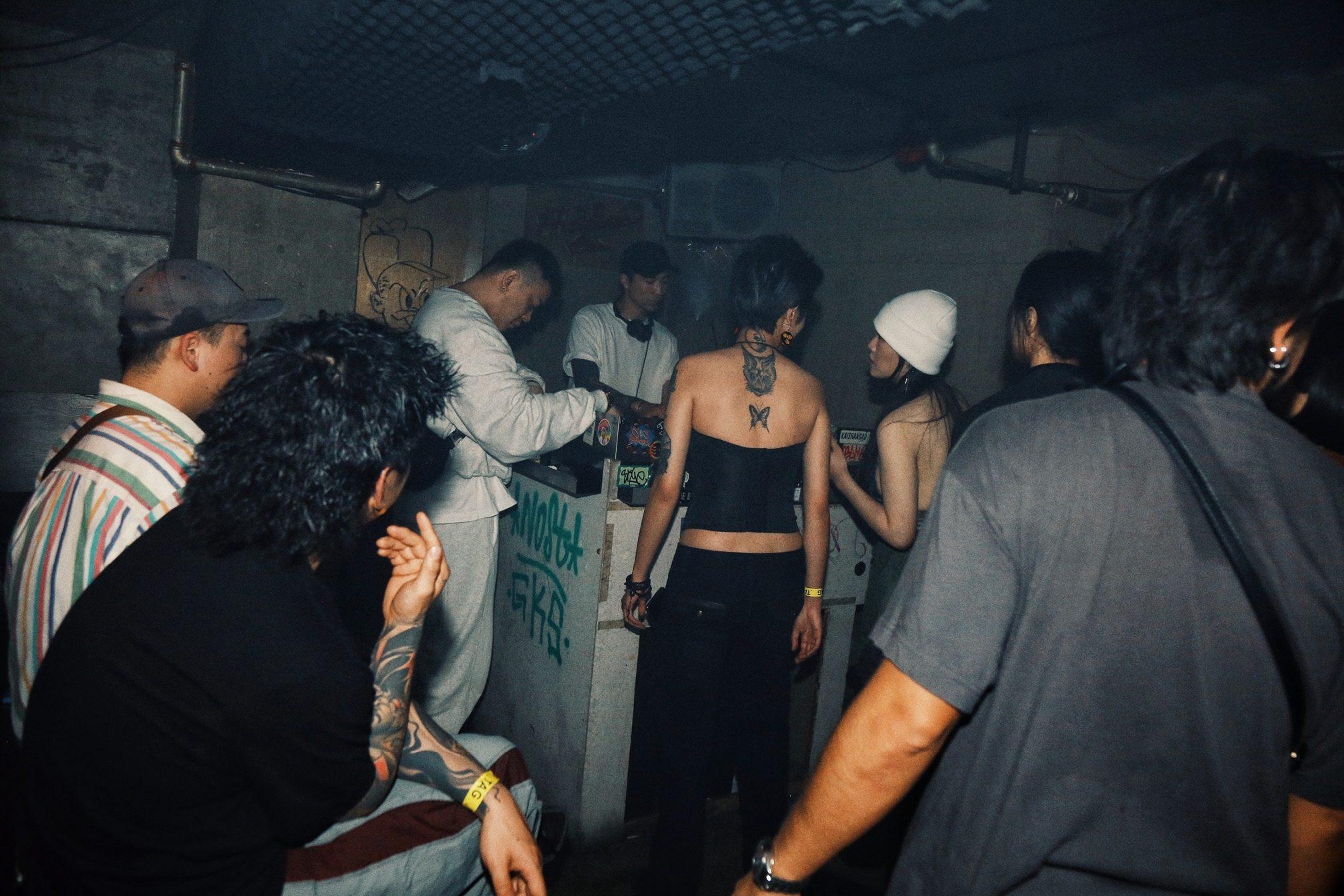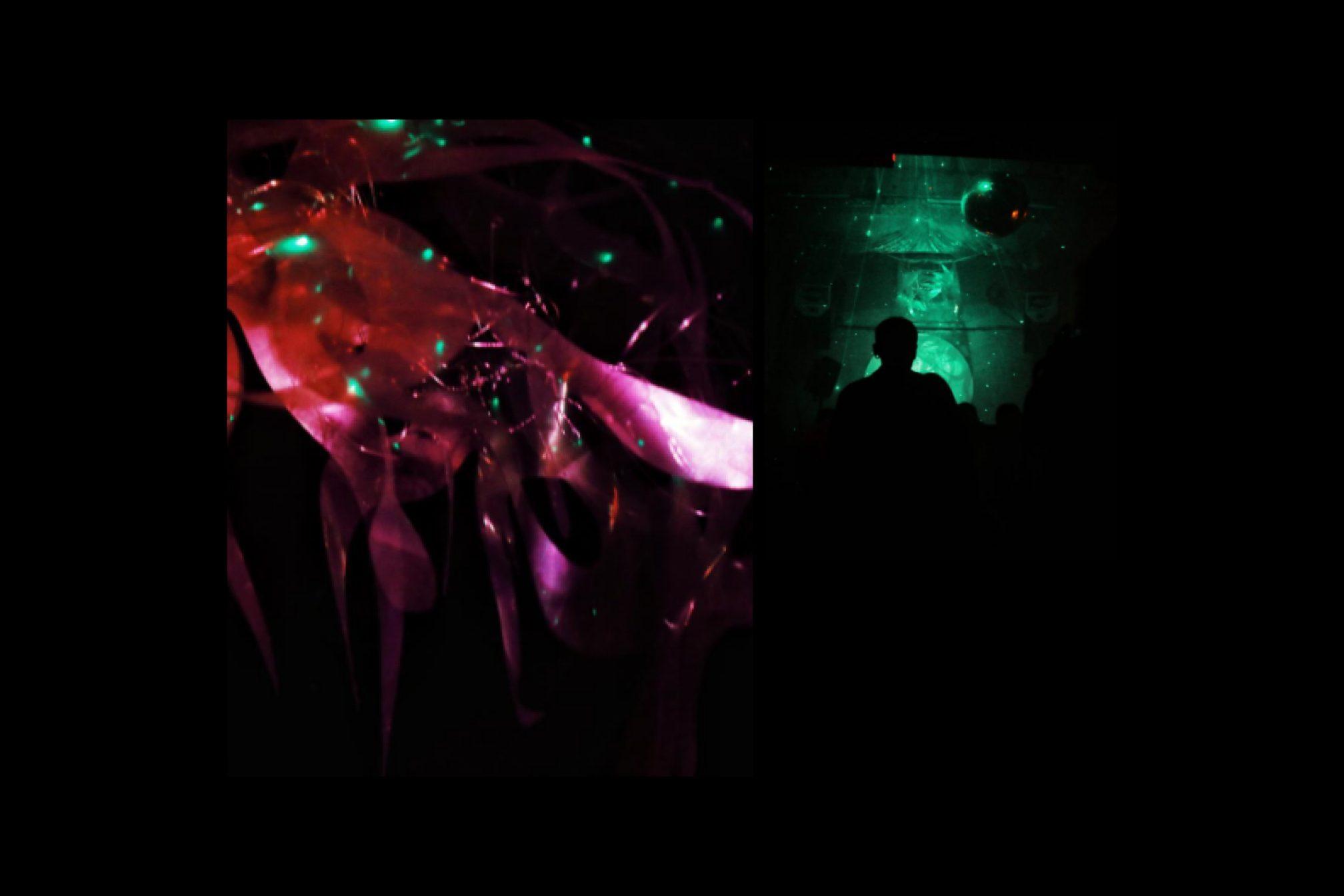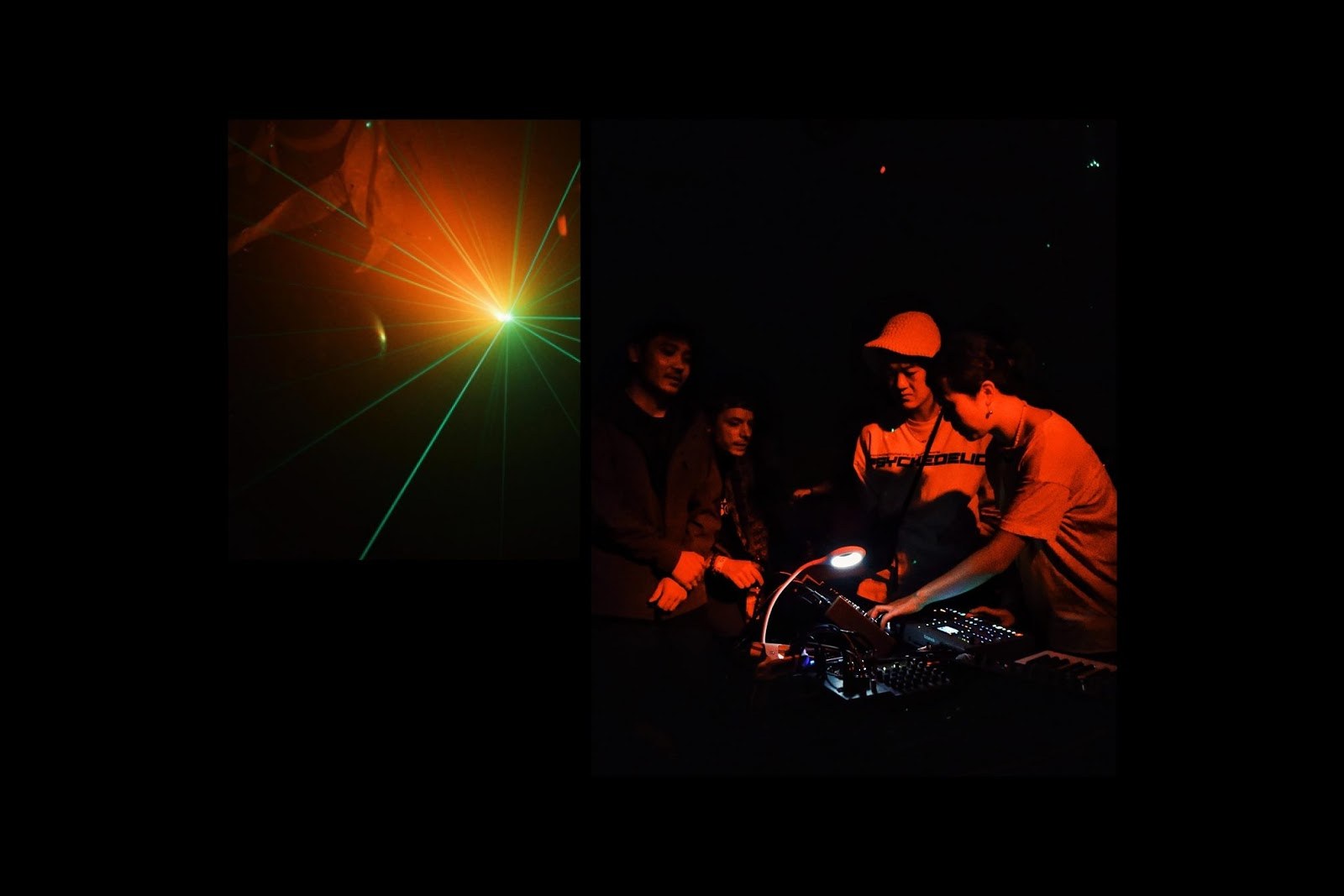 Features
Features
“A local culture created”: How the pandemic connected China’s club scene
With no international DJs allowed, domestic flight prices tumbling and a post-lockdown urge to explore, China is establishing a thriving dance music culture
For years, China’s underground music scene has been bubbling away, not quite ready to erupt. Decades of rapid economic growth and the increased connectivity of the world’s largest online population has transformed the nation like no other, with intrigued youths and determined xenophiles adopting all manner of new tastes and interests. Still, though, for a country obsessed with technology and boasting a ballooning middle class, the long fingers of electronic music have taken a while to get a grip on China’s youth. As clubs shut down across the world, however, a shift was occurring in China: the sleeping giant of the East was waking to the steady rumble of bass and the snipping of hi-hats.
“Literally as soon as they opened, everyone went to the club; they got really packed, especially in Beijing”, explains Ranyue Zhang aka Slowcook, a resident at Beijing’s Zhao Dai Club. “As soon as you turn on a smoke machine or a flashing light, people start screaming… It’s not even about the music; anything will make them happy.”
I last met Slowcook upon her return to Beijing from the UK, only 24 hours prior to my own return journey the other way, and just a few months before the new virus in Wuhan would throw the world into chaos. A two month spell working in China’s capital had afforded me the chance to explore a small but thriving scene that Slowcook and her accomplices sit at the centre of, finding an intimate community of avid clubbers that met almost religiously every weekend. The underground scene, she suggested, was looking more and more promising.
A year and a half later, almost none of the big bookings she had lined up ever stepped into the Zhao Dai booth. As China locked down in January 2020, the nascent clubbing culture was thrown into a silence that is now all too familiar around the world. Now having stepped out of COVID’s shadow like a bleary-eyed clubber at dawn, China’s underground community has started to see itself in a new light. The landscape is much the same, but as eyes adjust, the shape of change becomes apparent.
“After lockdown, there were no international DJs. So all the local DJs suddenly got booked to play everywhere. People chilled at home for one or two months, but after that, a lot of my friends had a really busy year. We just kept travelling,” says Slowcook.
For years, China’s underground scene had offered a distinctly international clubbing experience, often tailored to or orchestrated by Western immigrants and their ‘Expat’ tastes. While distinctly Chinese labels like Do Hits and Genome 6.66 Mbp have carved out acclaimed sounds for themselves in recent years, their formative years were spent predominantly playing in clubs with foreigners at the helm; Shelter in Shanghai was co-founded by Manchester-hailing Gareth Williams, while a Californian DJ, Michael Ohlsson, was behind the three Dada venues in Shanghai, Beijing and Kunming. Institutions like these played a key role in harbouring China’s fledgling dance community, birthing experimentally-minded new artists and labels like PAUSE:MUSIC and Williams' SVBKVLT, but also encouraged an internationally focused approach to bookings that has outlived many of the clubs themselves. As China’s economy opened up and borders snapped closed, however, the absence of international DJs proved the trigger for disparate local scenes to finally start gravitating together.
“Our local DJs used to warm up for international DJs, or perform at our Hidden Bar, but from last year they suddenly had much more important slots, and were spending time touring,” explains Ellen Zhang, the owner of Chengdu’s .TAG club. “There are a lot of cities in China with electronic music clubs, so I think last year was a huge help to local DJs’ careers.”
“Before, people would put local DJs on the posters, but nobody really listened to them,” says Fafa, a DJ and promoter who I’d met at Beijing’s intimate Wigwam bar. “China’s party culture was all about going to see the headliner; you’d arrive at 12:AM and leave by 3:AM. But once no international DJs could come, more or less every party had local DJs, or those from other cities in China. People got to know them, they recognised their talent. And as a DJ, when you see people come to watch you every week, you get bolder. That’s how a local culture is created.”

It wasn’t just the need for fresh DJs that underpinned this change, but an unexpected consequence of China’s grapple with COVID.
“COVID-19 meant that [domestic] flight prices went down quite a lot because so many people stopped travelling. So it was an opportunity for us, we could get on cheap flights,” Slowcook explains. “For the festival Zhao Dai did last year, loads of people were flying from Shanghai to Beijing. We call them yabi - subculture kids”.
It seems a new generation of party people has emerged from the pandemic, and with renewed enthusiasm for Chinese selectors. Masks, temperature checks and social distancing might be loosely implemented at some clubs, but in a country where authoritarian restrictions and an efficient track and trace system were quickly established, young people’s confidence in clubbing seems more or less COVID-proof.
“When we first reopened, we worried that people would still fear the virus and wouldn’t come out, but actually we discovered the opposite: lots of people had spent two months indoors, and had an even greater desire to party,” Ellen states with a smile. “There were also students who should have been abroad studying but couldn’t go, and travellers who had no way to leave the country – Chengdu is an important city in China for electronic music culture, so a lot of Chinese people who would normally go to Berlin or European music festivals came here instead. We’ve increased our numbers for this kind of tourist, so actually our business is growing beyond our forecasts.”
A city known for its slow pace of life, spicy food, and panda sanctuaries, Chengdu carries a starkly different reputation among China’s clubbing community. “It’s mental,” Slowcook laughs. “We call it Chengstedam, because China is really strict, but Chengdu is just heaven. You feel like it’s not inside of China at all.”
While more internationally-focused cities like Beijing and Shanghai have had longer to foster an underground culture, it’s Chengdu that gets the nod from China’s in-the-know clubbers. Stylistically informed by trips to global party capitals and set atop a skyscraper for idyllic sunrise sets, .TAG stands central to this reputation.
“When you’ve visited Europe, America, all over the world to go to clubs and festivals, you realise that the best parties are completely down to the people,” Ellen muses. “People are most important: it doesn’t matter what type of venue you’re in; it doesn’t really make much difference what city you’re in. What’s important is the audience. In many ways, Chengdu is no different to a lot of other Chinese cities: it’s massive, it’s modern. But at the same time, it has a really slow lifestyle.
“Of course, in Shanghai, Beijing, Guangzhou you have a lot of job opportunities, you can earn a lot of money, but life is stressful. In that kind of city it can be hard to relax and enjoy life. Chengdu as a city offers space for this culture to develop.”
Schooled in the art of partying by experiences abroad, Ellen and her core group in Sichuan had built a culture from the ground up, with international DJs regularly rolling through for Berlin-esque marathons at the iconic club. Now into its seventh year, .TAG has been an inspiration for clubs like Beijing’s Zhao Dai, and a well-footed training ground for China’s dancers.
The challenge now, Ellen argues, is not in attracting a new generation of post-COVID dancers, but shaping them.
“I think that after all these years, the most important work I’ve done was dancing on the dancefloor. To make money you need somebody to play music, somebody to collect money on the door, but my most important job over all these years is to party on the dancefloor with everyone. If you can teach people how to party, that’s a beautiful thing,” she says.
Though music and dancing are deeply ingrained in Chinese society, with musical troupes and crowds of square dancing aunties a permanent fixture of public spaces up and down the country, the disorientating world of underground music is a relatively new string to China’s cultural bow. Encouraging a migration from the fringes of dance music to the centre of a dancefloor can be a slow process, as Ellen testifies.
“I’m happy that we’ve been open seven years, because when I first started running parties, every time we did a night it would only be me and my team advancing five steps,” she smiles. “Chinese people are shy, and they wouldn’t be willing to dance until we went and led them. We’d go, we’d dance, and then eventually people would follow. But now we really don’t have this problem. We’ve seen those people that were led to dancefloors lead others, and maybe become DJs themselves, or promoters. So this culture has grown stronger and stronger. But this is hard, you have to do it every night.”

Feeding off this sudden connectivity, a post-lockdown exchange between clubs in the bigger cities was joined by lesser known names, with representatives of fledgling scenes in the likes of Xiamen and Hangzhou forming a moving congress during the summer months of 2020.
“Every weekend everyone was out partying, people from Elevator in Shanghai, OIL in Shenzhen, .TAG, Zhao Dai were all moving around. It had a really fresh feel,” recalls Fafa. “But at the end of the year, it had become a bit fatigued. Everyone had played everywhere, some people had come to Beijing loads of times. Line-ups were all the same and not so fresh, and with so much demand, DJs struggled to mix up their sets.”
While a cease in international bookings and the associated costs saved the big clubs a lot of money, some still scrambled to survive, with no government support forthcoming. In Beijing, the country’s political centre, governance was particularly cautious, meaning clubs were closed longer than in other cities. In a city where public life can be put on hold any time the state chooses to flex its muscles, Beijing’s clubs had familiarised themselves with lockdowns long before COVID arrived on the scene.
“In a way it’s a good thing,” Slowcook ponders philosophically. “The government has never supported underground music, so all artists and clubs have had to find their own ways to make money. So when a lockdown happens, they know how to survive. We find our own way, because the government won’t support this culture.”
Life in China returned to normal at an envious pace, but even after society restarted, clubs in various cities toed a fine line. Capacity issues, drug raids and noise complaints made for a few bumpy reopenings in Shanghai, but Beijing’s hardened institutions are streetwise from years of manoeuvring a politically sensitive locale.
“Zhao Dai was shut for almost five months, and still needed to pay rent and staff. So they started selling drink memberships for money - you could spend 500 kuai, and it’d be worth 1000 when the club finally opened. A lot of people who had never been to Zhao Dai saw it on WeChat, or Weibo, and then when it opened, suddenly a lot of new people came. Zhao Dai is more and more popular now.”
Over in Shanghai, experimental music haven ALL faced a similar struggle, fighting for its life with a fundraising effort that united local DJs and promoters with a series of fundraisers last May. Over in Sichuan, however, initial concerns soon proved premature. Studying the accounts at .TAG, Ellen and her crew were pleasantly surprised.
“Actually for 2019 and 2020 business was the same. This means that despite being closed for two months, for the 10 months the number of people streaming in was higher than before.”
Though the numbers on the door were strong, .TAG did encounter a different issue: with so many talented local DJs getting booked elsewhere, the leaders on the dancefloor were sometimes lacking.
“We’ve found that most of our DJs came from the dancefloor; they were ravers who gradually became DJs. A hobby from a year or two ago has become a career, a weekend interest has become the centre of their lives. So we’ve lost a small part of our dancefloors,” Ellen admitted.
“You know that if you have a dance floor full of ravers, the party will be fun. But now, many of the old ravers are focused on their own parties, or their own performances, and the dancefloors are full of new people. So this actually has a conflicting effect; it’s great that the new people are growing into the scene, but the vibe isn’t quite the same.”
The difference was highlighted during the Spring festival (Chinese new year), as a 36 hour long party saw .TAG’s old guard return, nurturing the new crowd with lessons as to what was expected.
“A lot of places in China have clubs, but we are different; we have a different vibe, a totally different way to play. If you want people to learn how to party, the way you think is important; we have a classic approach here: at .TAG you don’t go home until the sun rises.”
This kind of lyricism flows naturally from the charismatic club owner, who admirably juggles her responsibilities as a party pioneer with those of a mother to her young son. A shrewd businesswoman, she nonetheless makes a careful distinction between .TAG’s lofty ambitions and the money-centric attitudes of larger, glitzier clubs, particularly those which Slowcook mischievously describes as Shanghai’s “fashion techno scene”.
“In some cities, clubs have already started to turn things into a business; it makes them money, so from their point of view it is great, but I don’t think it is good for transmitting the culture,” Ellen emphasises. “If a DJ turns up and you have requirements regarding what they can play, this is not a culture, it is a business. These places, Beijing and Shanghai, they have a bigger foundation: they developed earlier, they have more people that listen to electronic music. But I hope some day Chengdu will have that many people, and we’ll be a bit more like Berlin.”

Resonant in each of my conversations with Ellen, Fafa and Slowcook is a fiery determination to craft something of their own - inspired by experiences in Europe, Japan and North America, but distinctly Chinese in character. A veteran of countless dancefloors, Ellen approaches her role as the owner of .TAG as if serving a public duty:
“A lot of people think “Oh, DJing is really cool” - everyone wants to be a DJ! But I see clearly: if you want to lift up this kind of culture, you don’t just need DJs, you need a comprehensive system. You need club owners, promoters, good bar staff, good people on lights and on the door. Even the auntie who cleans up: every element is very, very important. But people often aren’t willing to do the behind the scene work. I started a club, so I had to do this.”
It only takes a handful of inspiring characters to cultivate a scene, with the ripple effects of such role models presenting a much more palatable virology. It is understandable, then, why figures like Slowcook and Ellen receive such reverence from China’s next generation of party makers. A perfect illustration, Ellen recounts her advice to a friend, whose floundering club had led them to leave Taiyuan in search of answers on the bar at .TAG.
“They book good DJs, but nobody dances and business is bad. So they’re now working here on the bar; they’ve come to see how we do it,” she explains jovially.
For a wily eye like Ellen, the solution was clear. “I told them: 'Every time you invite people to the bar, you stand by the side talking. I’m telling you, first come with me to the centre of the dancefloor and dance until dawn; once you can do that at every party, then you can go back and open your club.'”
Perhaps if we are to take a lesson from China during these trying times, it should be this: while a single business might easily fall foul to acts of God or pangolin, a culture on the rise is much harder to dislodge.


